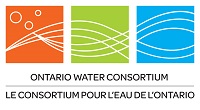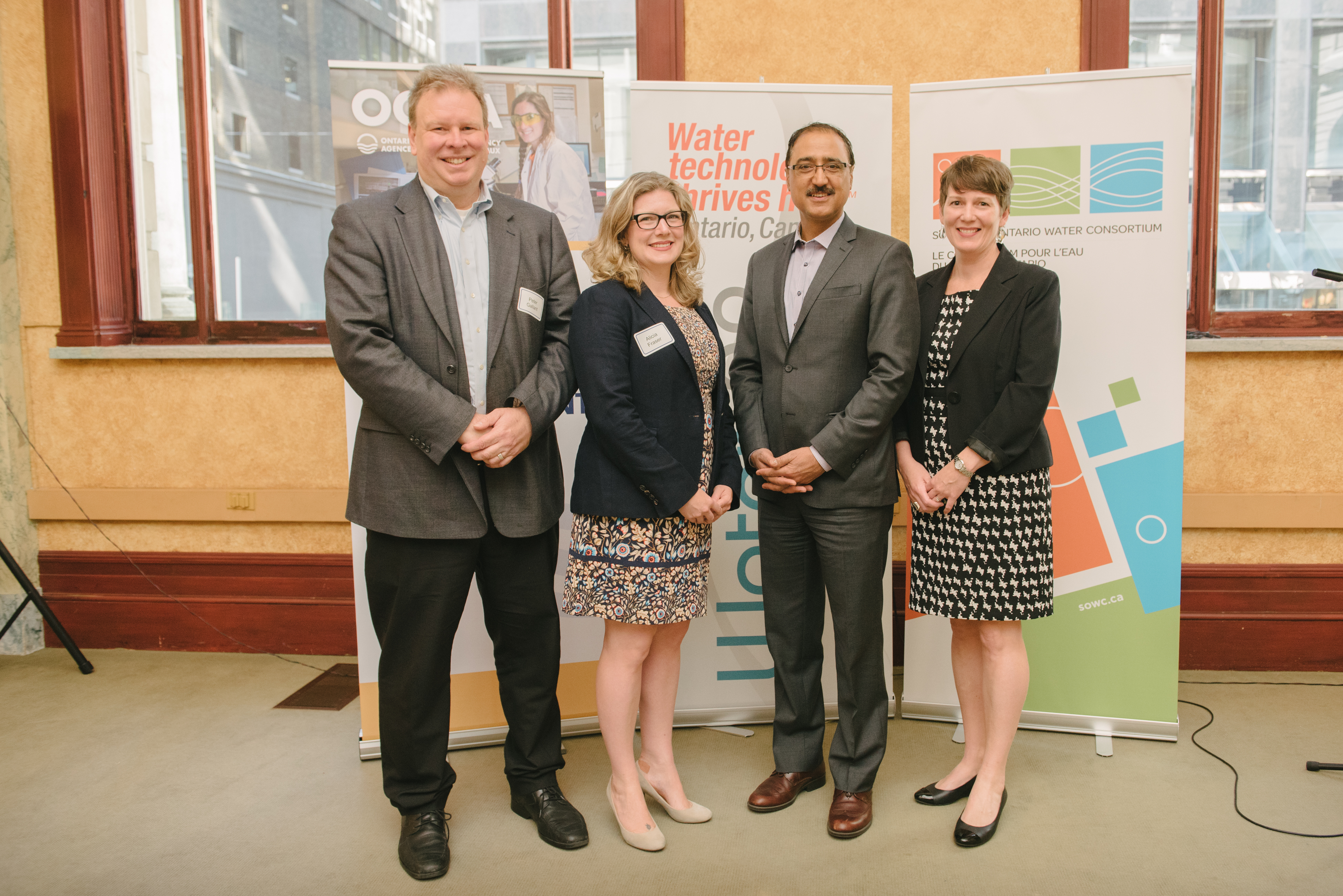On June 24, 2016, the Southern Ontario Water Consortium (SOWC), Ontario Clean Water Agency (OCWA) and Water Technology Acceleration Project (WaterTAP) hosted a session for water leaders from technology companies, municipalities, and the broader water sector to present four strategic recommendations to the Honourable Amarjeet Sohi, federal Minister for Infrastructure and Communities.
The Government of Canada is investing $120 billion over the next 10 years into an infrastructure plan that aims to address the gaps in infrastructure across the country. Phase 1 of the plan is already underway and includes a new $2.0 billion Clean Water and Wastewater Fund for provinces, territories and municipalities for immediate improvements to water distribution and treatment infrastructure.
The government has just launched phase 2 of this funding, and begun public consultation for input. The Water Sector roundtable provided an opportunity to introduce key recommendations in advance of the public process.
The recommendations are intended to shift the implementation of infrastructure funding to support innovation and growth, and the adoption of new approaches and technologies including Canadian cleantech solutions while fostering financial and environmental sustainability, resilience and new economic growth and jobs.
The group presented a strong message that the federal government should develop and implement this major investment in critical infrastructure to position Canada as a world leader in implementing the most efficient, robust approaches to water management and resource recovery.

Bird’s-eye view of the session on June 24, 2016. Copyright: SOWC
The four key recommendations, which should be considered part of a comprehensive package rather than stand-alone options, are outlined below. A detailed report of the roundtable and recommendations, with annotations and specific examples solicited in advance from participants is available.
Recommendation #1: Create a dedicated program to help municipalities get the most out of their existing assets.
A dedicated fund should support effective performance-based asset management planning, and programs for optimization and efficiency (including conservation and inflow/infiltration reduction and minimizing sewage bypass events). It would build upon the new dedicated national fund (through Federation of Canadian Municipalities) to support asset management planning best practices. It should also make available dedicated expertise, training and tools to support small municipalities including templates and tools to support the development of appropriate full cost rate structures.
Recommendation #2: Create a dedicated funding program to help municipalities implement projects to increase capacity or performance with non-traditional approaches.
A dedicated fund should support upgrades and repairs, living green infrastructure, innovative approaches and technologies including hardware and software to support maintenance management, monitoring and automation (“smart” systems and enhanced data collection). It will help municipalities identify, promote and invest public dollars in projects that can defer capital costs, quickly realize cost savings, and promote cost-effective, green and sustainable approaches and technologies before they consider new or expanded infrastructure.
Recommendation #3: All major infrastructure funding programs must include criteria that prioritize sustainability and resilience and encourage and support innovation.
Anticipated new investment by the federal government represents, as one participant described it “a ‘once in a century’ opportunity to transform urban water management and infrastructure in ways that will prepare communities for our changing climate, allow Canada to catch up to and surpass global leaders, and build up Canada’s clean water technology and services sector.” Such a transformative agenda must not only enable the activities and approaches described in the previous recommendations, but require that municipalities plan for and fully implement those approaches with clear preconditions before any major infrastructure investment will be considered. Prerequisites should include having in place a performance-based asset management plan; implementation of a recognized optimization program (such as the Composite Correction Program) which will improve performance with minimal or no capital investment; and tracking and reporting of key performance indicators including energy consumption, GHG emissions and carbon footprint.
Recommendation #4: Adopt wastewater regulations that set clear expectations that support the bold vision the government puts forward.
Incorporate performance-based effluent targets and benchmarks into regulations for wastewater systems that are based on fully optimized treatment facilities. Work with the provinces and territories to bring in requirements that all facilities set targets for nutrient recovery, water reuse, drinking water treatment performance and minimization of energy consumption. These are becoming expectations globally, and Canada’s vision and regulations need to set the country on a path to accomplish this while encouraging made-in-Canada expertise and technologies.
The summary report of the event and the detailed recommendations is available here.


